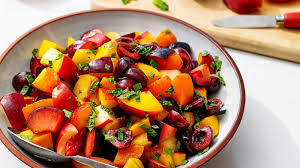Sukkos in Old Baltimore: Where What When Writers Reminisce

Sukkos Sixty Years Ago


Sukkos Sixty Years Ago

The first days of school have begun. All those nervous days of anticipation are behind us, and stretching before us now is a bright new year full of promise and potential. School is a time of growth, learning, and preparation for what is to come. How can we maximize what our students and children accomplish during these precious months?
Last year at this time, I wrote about the importance of establishing routines to ensure that a year’s worth of learning can take place. Now is the time to set up routines once again. But this year I’d like to talk about another important topic – relationships – without which nothing can be accomplished.

Questions crowded my mind like a stampede of wildebeest. It was 1943, and I had just been drafted into the American army. How would I face this war alone? Where would I be stationed? What did I need to know? Rabbi Minkowitz will have the answers! I took the stairs two at a time and pulled open the doors. The smell of stale tea and musty books led me to the Rabbi’s study. A glass teacup and a lone sugar cube shared the desk with a stack of papers and an olive green rotary phone. The Rabbi sprang from his high-backed birch swivel chair.
“Ahh, Sidney, good to be seeing you.”

We all know that technology is remarkable and has completely changed the world from what it was 100 years ago, but few things have changed as much in my own lifetime as the telephone.
When I was a child, we had electricity, indoor plumbing, a refrigerator, and a washer and dryer (unlike my aunt, who told me that at one point she had three children in diapers and washed the diapers by boiling them on top of the stove!). My parents did not drive when I was young, but I certainly rode in cars. So, though today we may have fancier cars, more air-conditioning, and nicer refrigerators – and can’t imagine life without them – they serve the same function as in the past. The telephone, however, has metamorphosed so drastically that, while it is still called a telephone, I think it qualifies as a new phenomenon.

To the Shadchan:
I am looking for some direction. I am a 39-year-old single woman working in an office. I’m happy with my job, and I have good friends that I like to spend time with and travel with. I live with my parents. I could live on my own, but I enjoy my family’s company. We are very family-oriented and often get together with extended family, including my siblings and many nieces and nephews.
Recently, someone suggested a 40-year-old guy from Florida for me. As always, my mother started calling around to find out the basics, and when the prospect sounded interesting, she made a barrage of phone calls to his references to find out more details. The guy had said yes, but when he was told that my mother was making all these calls, he was turned off and changed his mind.

Who doesn’t tremble on Rosh Hashanah and Yom Kippur, when the chazan chants the somber and fearsome Unesanu Tokef? This year, as we recall the unprecedented number of water tragedies that have occurred this summer, we will surely shudder even more when he comes to the part, “Mi vamayim – Who shall perish by water.”
The swimming season had barely gotten underway, in June, when three children drowned in Israel, leaving them in serious and critical condition; later that month, a man in his 50s fatally drowned in a pool in Tzefas. Closer to home, we are still traumatized by the drowning of Rabbi Reuven Bauman, z”l, who heroically jumped into the ocean to save a student and whose body was found off the coast of North Carolina by a boat of Misaskim of Maryland volunteers from Baltimore.

September brings a breath of fresh air, literally, if you take into account Baltimore’s signature summer heat and humidity. The temperature has finally dropped to under “melting,” and we can breathe easy again. Unfortunately, the return to the soothing hum of routine may be an illusion that is only sustainable because our lives don’t come with background music. If they did, something ominous would certainly be playing. Something enormous is coming and will be upon us before we have a chance to turn around, something so immense it disrupts school, siphons sleep, and even has its own season: Yom Tov.

Whew, Rosh Hashanah is coming – a time for reflection, a time for excitement. The Days of Awe they are called, meaning reverential respect mixed with wonder. That’s the way I like to think about Hashem, One Who is so much more than I can imagine, Who loves me unconditionally and totally, no matter what I do, and is there for me whenever I ask. And although I do not always get exactly what I want, I do always find a listening ear.
My father (may his neshama have an aliya) was also there for me. He always had time for me. He enjoyed my company, and gave me some advice and maybe a funny story to make my life just a little bit sweeter.

Treading on ancient cobblestone roads, one enters the imposing Sha’ar Yafo, Jaffa Gate, into Jerusalem of Old. The sun shimmers off the stone walls, enveloping you in gold: the fabled Yerushalayim shel Zahav, Jerusalem of Gold. Within these magnificent walls live thousands of Jews, Muslims, and Christians. For the past few years, I have been privileged to know one special family, originally from America, who requested to remain anonymous. I will call them Family L.

Electronic cigarettes, or e-cigarettes, are battery-operated smoking devices. These devices work by applying heat to a liquid-filled cartridge. The liquid, which is converted to an aerosol by the heat, contains nicotine. Inhalation of the aerosol is often called vaping. E-liquids come in a variety of flavors that turn out to be quite appealing to teenagers, like watermelon, cappuccino, and mango. While there are many different brands of e-cigarettes, the JUUL brand is by far the most popular, and the term “juuling” is now pretty much synonymous with vaping. E-cigarettes come in many sleek and user-friendly designs, most often resembling cigarettes, pens, or USB flash drives. An important aspect of these devices is that they mask unwanted tastes and smells commonly associated with smoking.
Copyright © 2012 Where What When. All rights reserved.